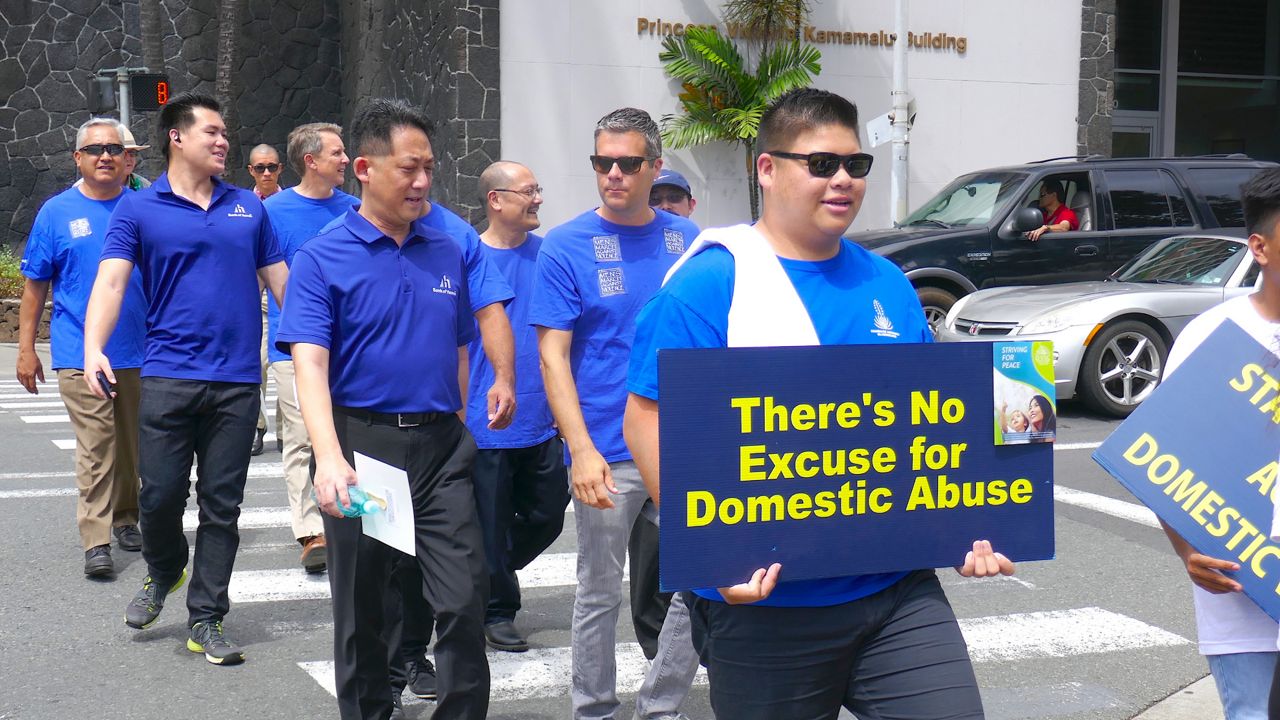As the 29th Men’s March Against Violence steps off Thursday in downtown Honolulu, event chair Keli‘i Beyer points out it’s one action that demonstrates the need for healing and support for victims of domestic violence.
“It’s really kind of symbolic of the bigger issue,” he said in an interview with Spectrum News ahead of the march.
“Obviously, we’re not going to end domestic violence just by marching through downtown Honolulu.”
The march culminates in a rally at Iolani Palace.
There will speakers talking about how domestic violence has affected them, and what can be done to combat domestic violence.
“So, maybe being inspired by those men that are speaking is something that those who join us … can bring back to their community, their families, neighborhoods and friendships” Beyer said.
This year’s theme is “Men Are Allies.”
“That’s what we’re doing. We’re trying to call the men to the table to help, you know? I feel fortunate to have been able to be one of those men for so many years, and to really look at women as the leaders and guidance and leadership from them.”
“The main issue is to raise awareness to the impact of domestic violence here in Hawaii and calling out men in our community to not only see the importance of awareness, but take personal accountability for solving the problem.”
Beyer pointed out that historically, women have been leading the way in advocating for domestic violence survivors.
“When we look at the statistics, that about 80- to 95% of domestic violence survivors are women … a lot of times this is an issue largely affecting women,” he said.
He explains that having men a part of the solution, while also acknowledging that men are usually the perpetrators of domestic violence, is key to bringing solutions to the community.
So, what does that look like?
“I would say another thing that needs to happen is we need to hold others accountable for negative language being used, or behaviors, and not ignore the issue,” Beyer said.
“I think too often, locally, it’s seen as somebody else’s problem, somebody else’s business, not to intervene … just to mind their own business.”
He notes that for many men, domestic violence is generational, they’ve learned it and so they continue that cycle, or they just don’t see it when it’s happening to those around them.
Beyer says people should know that if someone is a victim of domestic violence, they often first turn to a friend or family member. So, being able to recognize signs of an unhealthy relationship dynamic is helpful in being able to support someone.
Beyond Thursday’s march, there are other speaker forums planned throughout October and throughout the year. The Domestic Violence Action Center offers programs such as the Teen Alert Program that Beyer that works to educate younger people about healthy personal relationships.
For more information on how to get involved, visit the Domestic Violence Action Center website.
Lianne Bidal Thompson is the digital producer for Spectrum News Hawaii. She writes about community and general news.



